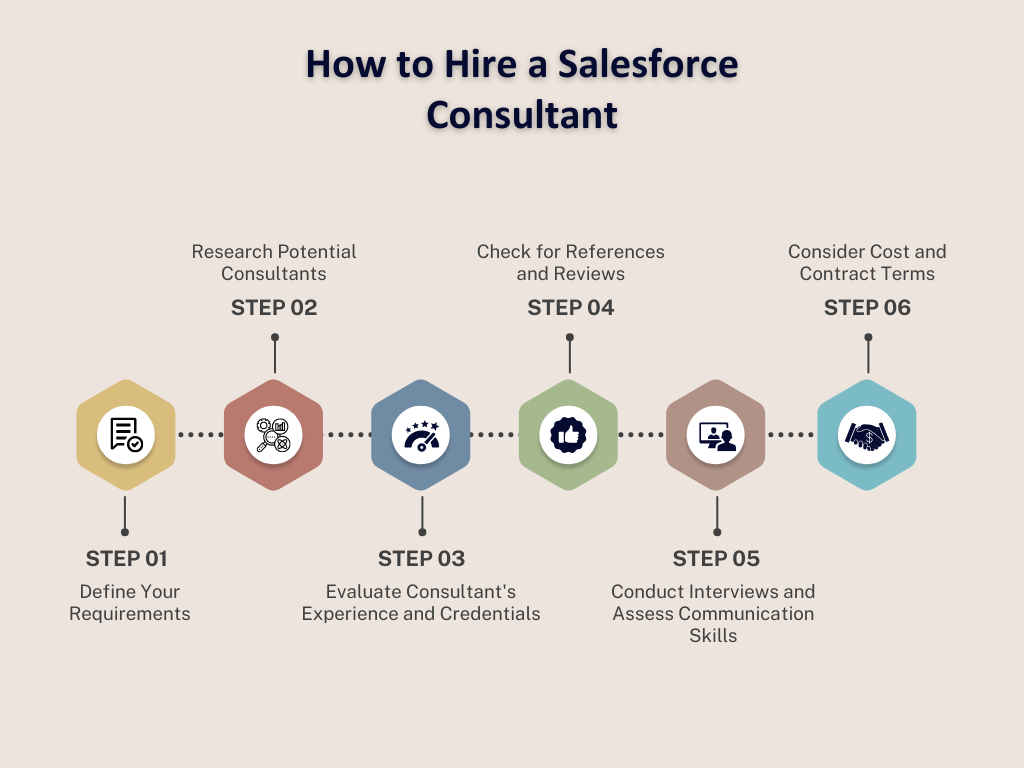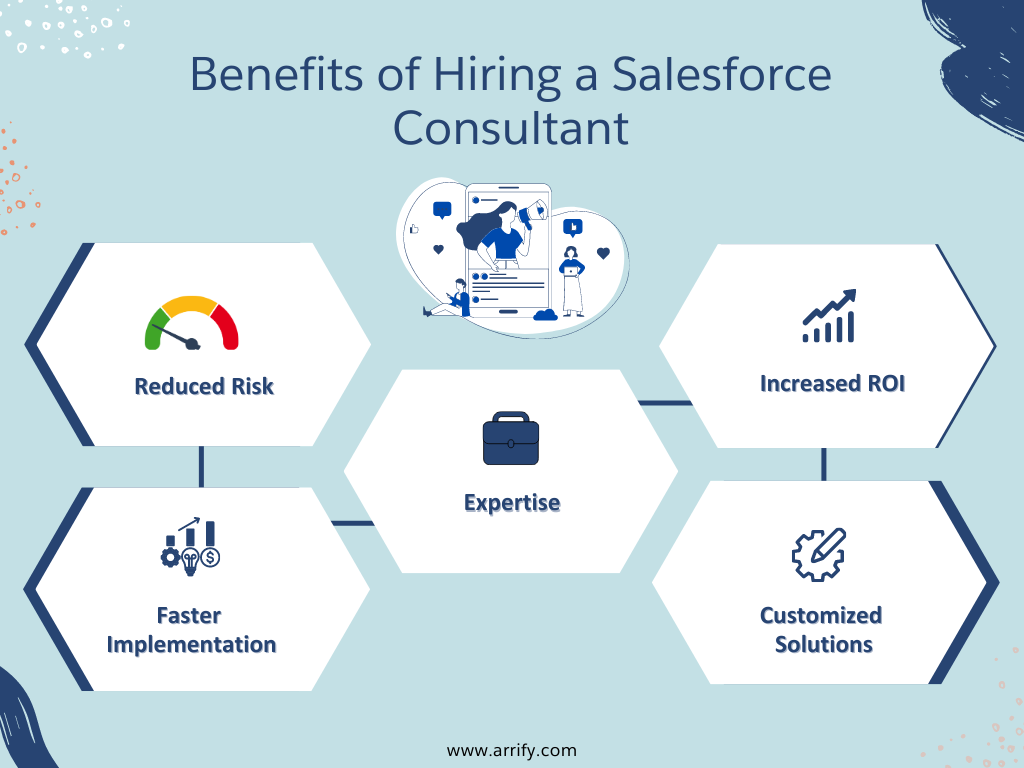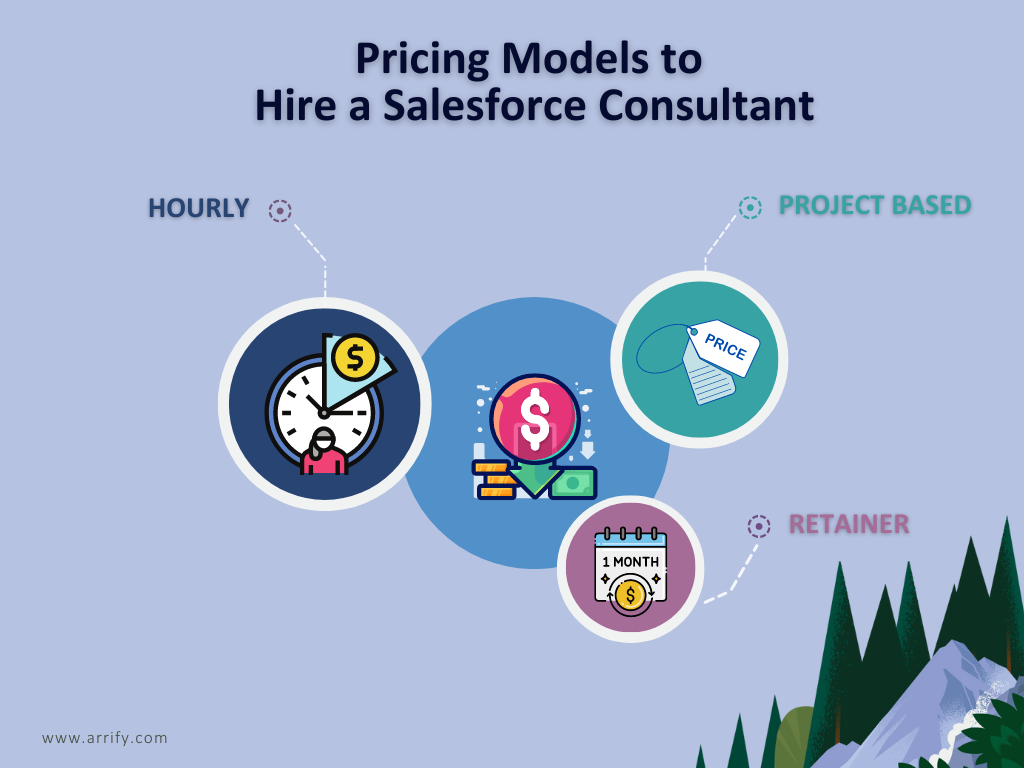Introduction
A Salesforce consultant is a professional who has expertise in working with the Salesforce platform and can provide guidance and support to businesses looking to leverage its capabilities. A consultant can help companies optimize their Salesforce implementation, customize the platform to meet their unique needs, and train employees to use it effectively.
Given the complexity of the Salesforce platform and the constantly evolving nature of the technology, many businesses opt to hire Salesforce consultant to ensure they are getting the most out of their investment. However, it’s important to carefully evaluate your needs and budget before deciding to hire a consultant. In the following sections, we’ll explore the reasons to hire a Salesforce consultant, how to hire one, and when it may not be necessary.
Why Hire a Salesforce Consultant
There are several reasons why a business might choose to hire a Salesforce consultant. Some of the most common reasons include:
Lack of In-House Expertise: Implementing and customizing Salesforce requires a certain level of technical expertise. If your organization lacks the in-house expertise necessary to optimize your Salesforce implementation, a consultant can help fill that gap.
Need for Customization: While Salesforce offers a range of out-of-the-box features, many businesses require customized solutions to meet their specific needs. A Salesforce consultant can help identify areas where customization is necessary and can develop solutions to meet those needs.
System Optimization: Even if you have a basic understanding of Salesforce, optimizing the platform for your specific needs can be a challenge. A consultant can help you streamline your Salesforce implementation and ensure that it is running at peak performance.
Data Migration and Integration: If you are migrating to Salesforce from another CRM platform or need to integrate Salesforce with other business systems, a consultant can provide guidance and support throughout the process.
Training and Support: Salesforce can be a complex platform, and training employees to use it effectively can be a challenge. A consultant can provide training and ongoing support to ensure that your team is getting the most out of Salesforce.
The decision to hire a Salesforce consultant will depend on your specific business needs and budget. By evaluating your requirements and working with a reputable consultant, you can ensure that your Salesforce implementation is optimized for success.
How to Hire a Salesforce Consultant

Hiring a Salesforce consultant can be a daunting task, but there are several steps you can take to ensure that you find the right consultant for your needs. Here are some key steps to follow:
Define Your Requirements:
Before you start searching for a consultant, it’s important to define your requirements. What specific challenges are you facing with your Salesforce implementation? What areas do you need help with? By defining your requirements upfront, you can ensure that you find a consultant with the right expertise and experience.
Research Potential Consultants:
Once you have defined your requirements, you can start searching for potential consultants. There are several online marketplaces and directories that can help you find Salesforce consultants, or you can ask for referrals from colleagues or other businesses in your industry.
Evaluate Consultant’s Experience and Credentials:
When evaluating potential consultants, it’s important to assess their experience and credentials. Look for consultants with a track record of success in working with businesses similar to yours, and check their certifications and credentials to ensure they have the necessary expertise.
Check for References and Reviews:
Before hiring a consultant, it’s a good idea to check their references and reviews. Ask for references from previous clients and check online reviews to get a sense of the consultant’s reputation and track record.
Conduct Interviews and Assess Communication Skills:
Once you have narrowed down your list of potential consultants, it’s important to conduct interviews and assess their communication skills. Look for consultants who can communicate effectively and who can explain complex technical concepts in plain language.
Consider Cost and Contract Terms:
Finally, when selecting a consultant, it’s important to consider cost and contract terms. Look for consultants who offer transparent pricing and who can provide a detailed scope of work and timeline for the project.
By following these steps and carefully evaluating potential consultants, you can find a Salesforce consultant who can help you optimize your Salesforce implementation and achieve your business goals.
Benefits of Hiring a Salesforce Consultant

Hiring a Salesforce consultant can provide numerous benefits for businesses looking to optimize their Salesforce implementation. Here are some of the key benefits:
Expertise:
A skilled Salesforce consultant brings deep expertise and experience to the table, which can help you achieve your business goals more efficiently and effectively. A consultant can help you navigate the complexities of Salesforce and deliver customized solutions that meet your specific needs.
Faster Implementation:
By working with a consultant, you can accelerate the implementation of Salesforce and reduce the time it takes to achieve your business goals. A consultant can help you define a clear scope of work and develop a roadmap for implementation, which can help ensure that the project stays on track and is completed on time.
Reduced Risk:
Implementing Salesforce can be complex and risky, especially if you don’t have prior experience. A consultant can help you mitigate these risks by providing guidance on best practices, identifying potential issues before they arise, and ensuring that your implementation is aligned with your business needs.
Customized Solutions:
Every business has unique needs and requirements, which is why a one-size-fits-all approach to Salesforce implementation may not be sufficient. A consultant can help you deliver customized solutions that are tailored to your specific business needs, ensuring that your implementation is optimized for your organization.
Increased ROI:
By optimizing your Salesforce implementation, you can increase your return on investment (ROI) and achieve your business goals more effectively. A consultant can help you identify opportunities for improvement, streamline your workflows, and ensure that your Salesforce implementation is aligned with your overall business strategy.
By leveraging the expertise and experience of a skilled Salesforce consultant, you can achieve a successful and sustainable Salesforce implementation that helps drive business growth and success.
Pricing Models to Hire a Salesforce Consultant

When hiring a Salesforce consultant, you’ll typically encounter three pricing models: hourly, project-based, and retainer. Each model has its pros and cons, and the best option for your business will depend on your specific needs and budget. Here’s an overview of each pricing model:
Hourly:
Hourly pricing is the most common pricing model for Salesforce consultants. With this model, you pay the consultant for the hours they work on your project. Hourly rates can vary widely depending on the consultant’s experience and expertise, and can range from $75 to $300 or more per hour. Hourly pricing can be a good option if you have a limited budget and a smaller scope of work.
Project-Based:
With project-based pricing, you pay the consultant a fixed fee for completing a specific project or scope of work. This pricing model can be a good option if you have a well-defined scope of work and a clear budget, as it allows you to plan and budget for the project upfront. Project-based pricing can also help reduce the risk of unexpected costs or delays.
Retainer:
Retainer pricing involves paying a consultant a fixed fee on a monthly or quarterly basis to provide ongoing support and guidance. This pricing model can be a good option if you have ongoing Salesforce needs and want to ensure that you have access to expert guidance and support over time. Retainer pricing can also help you budget more effectively for ongoing Salesforce expenses.
The best pricing model for your business will depend on your specific needs and budget. Hourly pricing can be a good option for smaller projects or businesses with limited budgets, while project-based pricing can be better suited for larger or more complex projects. Retainer pricing can be a good option if you have ongoing Salesforce needs and want to ensure that you have access to expert guidance and support over time.
When evaluating Salesforce consultants, be sure to ask about their pricing models and compare their rates to ensure that you’re getting a fair price. Also, be sure to define a clear scope of work and budget upfront to ensure that there are no surprises or unexpected costs later on. With the right pricing model and consultant, you can achieve a successful Salesforce implementation that meets your business needs and budget.
How to Reduce Cost and Consider Freelancers or Outsourcing
Hiring a Salesforce consultant can be a significant investment, but there are several ways to reduce costs and make the process more affordable. Here are some tips:
Define a Clear Scope of Work:
One of the best ways to reduce costs is to define a clear scope of work upfront. By outlining exactly what you need the consultant to do, you can avoid costly scope creep and ensure that the project stays on track.
Use Fixed-Price Contracts:
When working with a consultant, consider using a fixed-price contract rather than an hourly rate. This can help you avoid unexpected costs and ensure that the consultant is motivated to complete the work on time and within budget.
Consider Freelancers:
Freelancers can be a more affordable option than full-service consulting firms. There are several online marketplaces and directories where you can find freelance Salesforce consultants, and many offer flexible pricing and contract terms.
Outsource Non-Critical Work:
Another way to reduce costs is to outsource non-critical work to a less expensive provider. For example, you may be able to outsource data migration or basic customization work to a more affordable provider, while working with a consultant on more complex tasks.
Use a Hybrid Model:
Finally, consider using a hybrid model where you work with a consultant for certain tasks and handle other tasks in-house. This can help you reduce costs while still leveraging the expertise of a consultant when necessary.
By considering these tips and exploring different options for working with a Salesforce consultant, you can find an affordable solution that meets your business needs and budget.
When Not to Hire a Salesforce
Consultant While hiring a Salesforce consultant can be a smart investment for many businesses, there are situations where it may not be necessary or advisable. Here are some situations where you may want to avoid hiring a consultant:
Limited Budget:
If you have a very limited budget, hiring a consultant may not be feasible. Instead, you may need to rely on online resources and self-learning to optimize your Salesforce implementation.
Small Business with Simple Needs: If you are a small business with simple Salesforce needs, you may be able to handle the implementation and customization yourself. Salesforce offers a range of training resources and support options that can help you get started.
In-House Expertise:
If you already have in-house Salesforce expertise, hiring a consultant may not be necessary. Instead, you may be able to leverage your existing team to optimize your Salesforce implementation.
Temporary Needs:
If you have temporary Salesforce needs, such as migrating to a new version of Salesforce or integrating with a new business system, you may not need to hire a consultant. Instead, you may be able to hire a contractor or use an online service to handle the work.
Lack of Clarity on Business Needs:
If you are unclear on your specific business needs and how Salesforce can help address them, hiring a consultant may not be the best option. Instead, you may need to spend more time researching and evaluating your needs before engaging a consultant.
By being realistic about your business needs and budget, you can determine whether hiring a Salesforce consultant is the right choice for your organization. If you decide not to hire a consultant, there are still many resources and options available to help you optimize your Salesforce implementation.
Conclusion
Hiring a Salesforce consultant can be a smart investment for businesses looking to optimize their Salesforce implementation and achieve their business goals. A skilled consultant can help you navigate the complexities of Salesforce and deliver customized solutions that meet your specific needs.
However, it’s important to carefully evaluate your business needs and budget before engaging a consultant. Consider whether you have the in-house expertise to handle the work, whether you have a clear scope of work and budget, and whether you can afford to hire a consultant.
If you do decide to hire a Salesforce consultant, take the time to research potential providers, evaluate their credentials and experience, and check references. By choosing the right consultant and defining a clear scope of work upfront, you can ensure that your Salesforce implementation is a success.
Remember, a good Salesforce consultant should not just deliver a solution, but also empower your team with the skills and knowledge to maintain and improve your Salesforce implementation over time. With the right consultant and approach, you can achieve a successful and sustainable Salesforce implementation that helps drive business growth and success.
